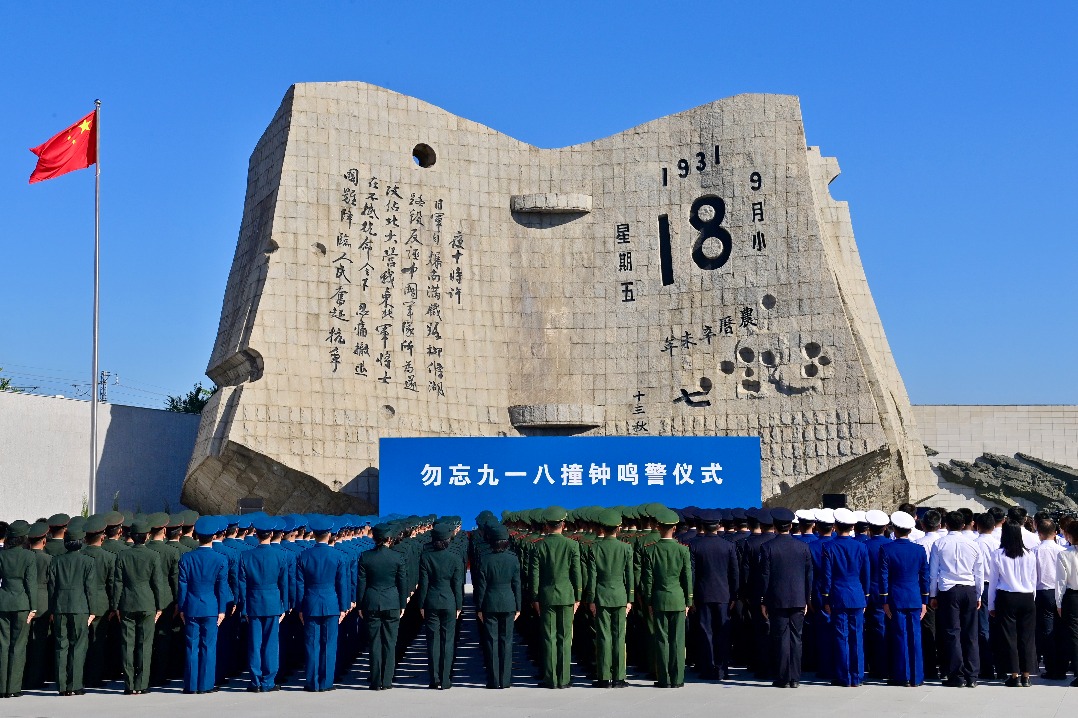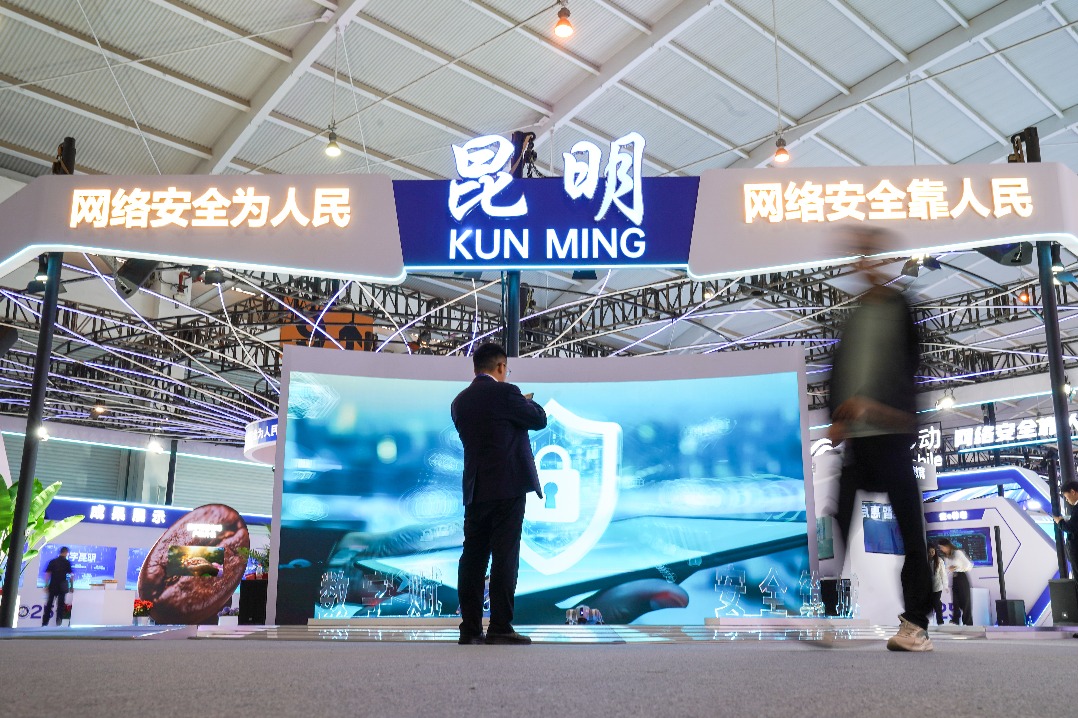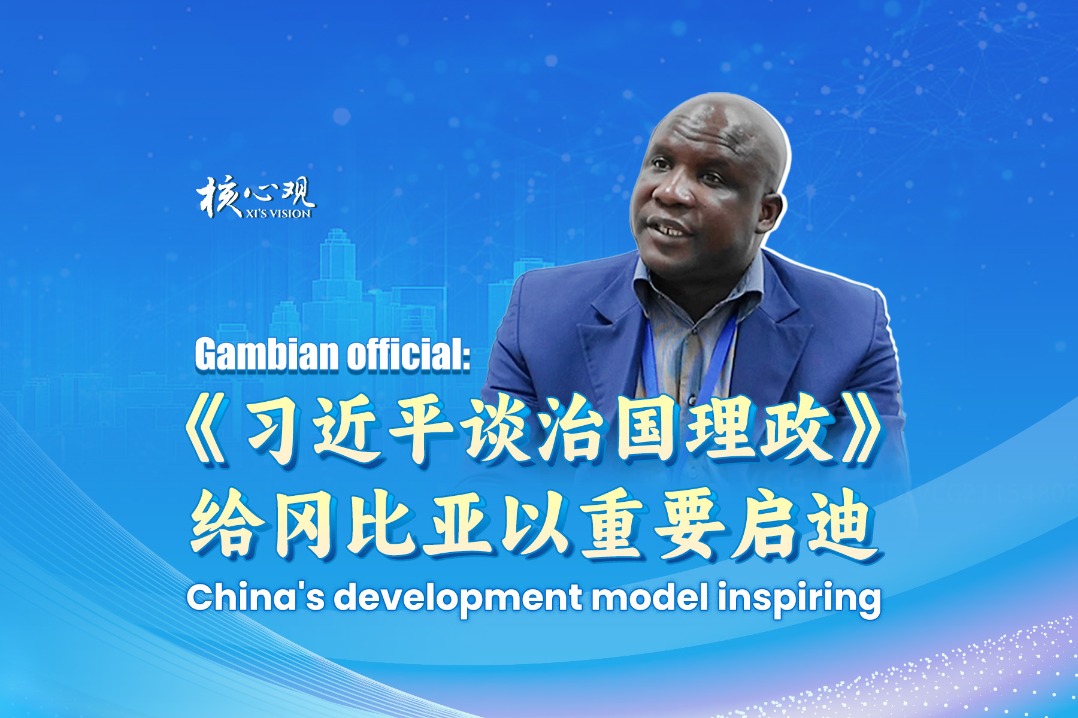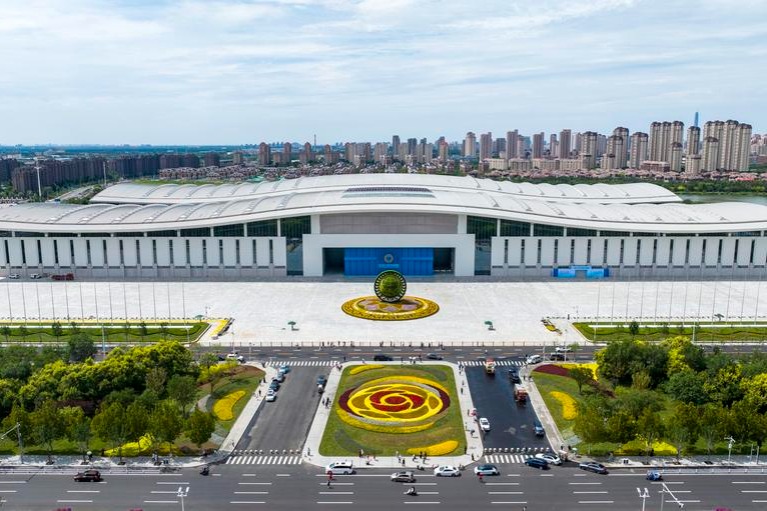Winds of change


In response to US tariffs, the EU should improve its relations with the rest of the world
In recent years, European leaders have often claimed that China has been pursuing its political interests too assertively. They allege that China has been trying to reshape the existing rules-based international order, with dire consequences for European and global security. Europe's economic dependence on China has also grown in recent years and some European leaders therefore called for de-risking from China.
For eight consecutive years, from 2016 to 2023, China was Germany's largest partner in terms of trade in goods. When it emerged earlier this year that the United States replaced China in this position in 2024, a sigh of relief could be heard in political circles in Berlin. At last, the de-risking recommended in the German government's 2023 strategy on China had apparently produced the "desired result".
But the relief was short-lived. On April 2, the so-called Liberation Day, the US administration set out to upend the international trade order that had served the world, including the US, so well for decades. European leaders were quick to criticize the tariffs announced — and temporarily suspended since — by the US.But one might pause for a moment to consider what their reaction would have been if — just imagine — it had been China doing something remotely similar. The outcry in Brussels is easy to imagine.
Now it is not China that is threatening the global economy, but the US. The new coalition in Germany was apparently ill-prepared for this. In its coalition agreement, negotiated in April and signed in May, it states that the transatlantic alliance with the US is a "great success story for both sides" that must be continued "under the new conditions". Regarding trade and investment relations with China, the coalition proclaims that it will reduce unilateral dependencies and pursue a policy of de-risking. Given the chaos currently emanating from Washington, this makes for awkward reading: Germany would clearly be better advised to reduce its unilateral dependence on the US and build on the success of its relations with China.
European politicians cannot even claim to have been surprised by this development. It has been well known for years that Europe, and especially Germany, has been overly dependent on the US for its exports of goods, especially automobiles. The same is true of Europe's dependence on the US for digital services and, most importantly, military security. The US administration has repeatedly let it be known that it sees tariffs as a panacea for the US economy, and that good relations with its partners in NATO and the EU are not among its priorities. But apparently few politicians in Europe took it seriously.
German companies, however, were more cautious: While EU flows of foreign direct investment to China have declined in recent years, German companies have continued to invest record amounts to improve their chances in the Chinese market. Mercedes-Benz and Volkswagen announced further investments, as did German chemical giant BASF and many smaller "hidden champions". German companies continue to take a long-term "in China, for China" perspective, successfully localizing production and innovation to adapt to the growing Chinese economy. In doing so, they are preparing to compete with Chinese companies in the Chinese market and, perhaps more importantly, in third country markets in the Global South.
Especially after the "Liberation Day" tariffs, Europe will have to look out for itself by improving its trade relations with the rest of the world, in particular with China. In contrast to Washington's disruptive behavior, Beijing presents an image of stability, modernity, predictability and continued growth.
European Commission President Ursula von der Leyen has shown more wisdom than the German coalition. At the World Economic Forum in Davos in January, she declared: "2025 marks 50 years of our union's diplomatic relations with China. I see it as an opportunity to engage and deepen our relationship with China, and where possible, even to expand our trade and investment ties." Ursula von der Leyen and Chinese Premier Li Qiang recently agreed to hold an EU-China summit in July.
The big question now is whether the EU and China can bridge their many differences to jointly resist the US' tariffs. While some concerns persist regarding trade practices and market openness, both Europe and China have expressed a commitment to constructive dialogue and mutual understanding. The Brussels-based think tank Bruegel recently concluded that fears of trade diversion from China are probably overblown. There are simply not that many Chinese products exported to the US that would compete with European products. Tellingly, in April 2025, Chinese exports to members of the Association of Southeast Asian Nations rose by 20.8 percent year-on-year — but Chinese exports to the EU just by 8.3 percent.
In his first government declaration on May 14, the new German Chancellor Friedrich Merz pointed out that China will remain an important partner for Germany and the EU for global issues and the economy. To promote long-term mutual benefit, Europe and China should therefore consider a cooperative understanding that ensures open markets on both sides and addresses concerns over potential trade realignments resulting from recent geopolitical disruption: Brussels removes its tariffs on Chinese electric vehicles, while Beijing withdraws the trade cases it recently launched against EU products. Both open even further to investment from the other. Finally, the Comprehensive Agreement on Investment, agreed between Chinese and European leaders in 2020, but not ratified by the EU, should be revived.
It may be more challenging for Europe and China to resolve some divisive political issues, but recent developments signal a mutual willingness to enhance dialogue and cooperation. China's decision to lift sanctions on five members of the European Parliament is a welcome step toward strengthening political dialogue; it should be followed by a similar initiative on the part of the Europeans. While challenges remain in areas such as human rights issues and differing perspectives on the crisis between Russia and Ukraine, both sides should reaffirm their shared commitment to uphold the principles of the UN Charter and the Five Principles of Peaceful Coexistence, including respect for territorial integrity and sovereignty, non-aggression, and non-interference in the internal affairs of other states.
The author is a former member of the German Foreign Service, an advisory professor at Tongji University and a visiting scholar at the Center for Cultural Studies on Science and Technology in China at Technical University of Berlin. The author contributed this article to China Watch, a think tank powered by China Daily.
The views don't necessarily reflect those of China Daily.
If you have a specific expertise, or would like to share your thought about our stories, then send us your writings at opinion@chinadaily.com.cn, and comment@chinadaily.com.cn.


































